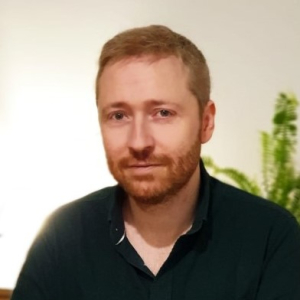Depending on who you ask, they could refer to it as the geographical Balkan Peninsula (with the somewhat controversial inclusion of Greece), or the more contemporary Balkan States, in line with the geopolitical boundaries established mainly during the late 20th Century. There are overlapping and conflicting definitions as to where the Balkans exactly begin or end, or how they relate to other regions of the continent.
But when it comes to language, there seems to be a large similarity between the ones spoken in the region. A quick example of how to say “Universal declaration of human rights” in the four main languages can give us an idea of how much they have in common:
Croatian: Opća deklaracija o pravima Äovjeka
Bosnian: Opća deklaracija o pravima Äovjeka
Serbian: Opšta deklaracija o pravima Äov(j)eka
Montenegrin: Univerzalna deklaracija o ljudskim pravima
With the exception of Montenegrin in this case, which happens to stand out a bit in this particular phrase, they are in fact so similar that in 2017, a group of linguists in Sarajevo signed what they called a “Declaration of Common Language,” insisting that all four languages are actually only one.
But things aren’t always so simple, and this is where politics and nationalism often appear out of thin air and throw their hat into the ring. And if there’s a perfect breeding ground for these agendas, it’s war.
The Balkans endured a fair amount of conflict during the last Century, most notably the Bosnian war of the early 90’s, and after struggles of this magnitude, it’s hard to simply make peace and forget the past overnight. These conflicts incentivized the effort to become a distinct nation in a region that historically shared significant parts of their cultural background and relatively undefined borders, and one of the first steps taken was to boost national pride by having a national language.
Even if these languages stemmed from a common one with minor variations, they were distinctly named and became a tool for political purposes more than a legitimate cultural legacy. After the war, the already blurry political borders shifted further, and each new nation proceeded to claim their slice of the linguistic pie.
So, is it one language or four? Well, the issue is chiefly one of self-determination and the people's right to call the language what they want, rather than an attempt to artificially create a new language when there is none. While there is nothing wrong in principle, the nationalist background that led to these rather artificial definitions is largely at odds with a strictly linguistic point of view.
A similar example is that of the languages spoken in the autonomous community of Valencia, and the autonomous community of the Balearic Islands in Spain. These two languages, known as Valencià and Mallorquí, are deeply similar to the Catalan language, but due to the complex political makeup of modern Spain, they are (somewhat reluctantly by academics) recognized as three distinct languages.
It seems that after all, the enigma of the Balkan language and probably many more similar situations almost always has an explanation rooted in a fair amount of nationalist politics. We usually think of languages as slow moving cultural and historical juggernauts that evolve to accommodate the needs of their speakers, but situations like these show how a few political decisions can change their future, and even attempt to change their past.





